KATHMANDU: Following Prime Minister KP Oli’s visit to China on December 5, speculation about his upcoming visit to India emerged, but uncertainty remained regarding the timeline.
Meanwhile, Nepal’s Foreign Minister Dr. Arzu Rana’s recent visit to India has garnered attention, especially since she arrived in New Delhi directly from Europe. However, the reception in New Delhi has been less than warm.
Dr. Rana attended the Nepal-India Economic Conference in New Delhi last Friday, organized by the Foundation for Economic and Welfare in collaboration with Kathmandu University.
The event aimed to foster dialogue between leaders and investors from both countries.
In her address, Dr. Rana emphasized the deep and longstanding relationship between Nepal and India, particularly in trade and commerce, and encouraged Indian investors to invest in Nepal, highlighting the potential for bilateral growth.
Prime Minister Oli’s political situation is not only shaped by his relationship with Delhi but also by his internal party dynamics, particularly with Nepali Congress (NC) leader Sher Bahadur Deuba.
Despite the presence of Indian policymakers and investors, the reception was notably subdued.
The reluctance of Indian leadership to engage with the Nepalese delegation raised questions about the state of bilateral relations.
Indian authorities, including Prime Minister Narendra Modi and Foreign Minister S. Jaishankar, avoided formal meetings with Minister Rana.
Sources suggest that India is hesitant to involve itself in Nepal’s internal affairs, particularly given the ongoing political instability in Nepal.
Concerns about shifts in alliances and broader geopolitical changes in South Asia may have led to India’s cautious approach.
Analysts believe India is refraining from engaging with Nepal’s current leadership due to the uncertainties surrounding the country’s political landscape.
The lack of enthusiasm in Delhi signals growing diplomatic strain between the two neighboring countries.
India has shown little interest in the current political alliance led by Prime Minister Oli.
In 2079 BS, India had hoped for a stable relationship with the Nepali Congress and the Maoist Center, but the political landscape in Nepal shifted unexpectedly.
Prime Minister Prachanda’s return to power, in alliance with the UML, resulted in a new political formation, with the UML and other factions working to create a new alignment.
Observers have to note that Prime Minister Oli’s visit to China and Nepal’s involvement in the Belt and Road Initiative (BRI) have contributed to growing dissatisfaction in India.
While PM Oli previously maintained a close relationship with Indian Prime Minister Narendra Modi, sources suggest India has become increasingly disillusioned with Oli’s dual stance.
On one hand, Oli made internal commitments, but on the other, his foreign policy, particularly with China, has caused concern in New Delhi.
This inconsistency has strained relations between India and Nepal, with more attention focused on short-term tensions than on long-term diplomatic relations.
Meanwhile, Foreign Minister Dr. Rana has been under pressure, with Prime Minister Oli’s visit to India remaining uncertain. Oli now faces multiple pressures, both internally and externally.
Internally, his party is divided, with demands for leadership changes and the adoption of a new party statute.
However, Oli is reluctant to relinquish his position, and some believe a new faction could emerge within his party to challenge his leadership.
Meanwhile, his government’s handling of the BRI and other issues has made relations with the Nepali Congress, especially its chairman Sher Bahadur Deuba, increasingly strained.
Externally, the Indian side remains cautious about Nepal’s political shifts and the ongoing concerns about the BRI agreement, which has caused discontent within political circles.
Public dissatisfaction with the government is also growing, with increasing criticism over corruption, the deepening economic crisis, and the lack of progress on key issues.
The government’s inability to address these challenges has made Prime Minister Oli’s position even more vulnerable.
As he struggles with political setbacks, Prime Minister Oli has made statements that some view as self-sabotaging.
Oli’s remarks have raised eyebrows, particularly his comparisons between current political alliances and past royal family formations, which have stirred controversy.
In his latest statements, Oli hinted at the need for a new coalition and criticized the existing government’s inability to govern effectively.
Nepali Congress leaders like Shekhar Koirala and General Secretary Gagan Kumar Thapa have openly criticized Oli’s administration.
These remarks, along with his past political missteps, suggest that Oli’s political future is increasingly uncertain.
Meanwhile, the ongoing tensions within his party and the growing discontent from the public make it unclear how long Oli can maintain his grip on power.
Prime Minister Oli’s political situation is not only shaped by his relationship with Delhi but also by his internal party dynamics, particularly with Nepali Congress (NC) leader Sher Bahadur Deuba.
Deuba, who is often seen as the ‘waiting prime minister,’ is biding his time, observing how the political landscape evolves.
Deuba’s approach could unfold in two possible directions. One scenario is that he may continue to wait alongside Oli for the next 18 months.
However, according to some sources, Deuba’s stance could shift, and it wouldn’t be surprising if he decides to realign with other political forces sooner than expected, given the growing pressure.
This shift could be reflected in the increasing dissatisfaction with the Oli government.
Nepali Congress leaders like Shekhar Koirala and General Secretary Gagan Kumar Thapa have openly criticized Oli’s administration.
Koirala, in particular, has pointed out that the Oli government has failed to fulfill the commitments made in the 7-point agreement.
Such expressions of discontent from within the Nepali Congress are signaling a potential shift in political alignments.


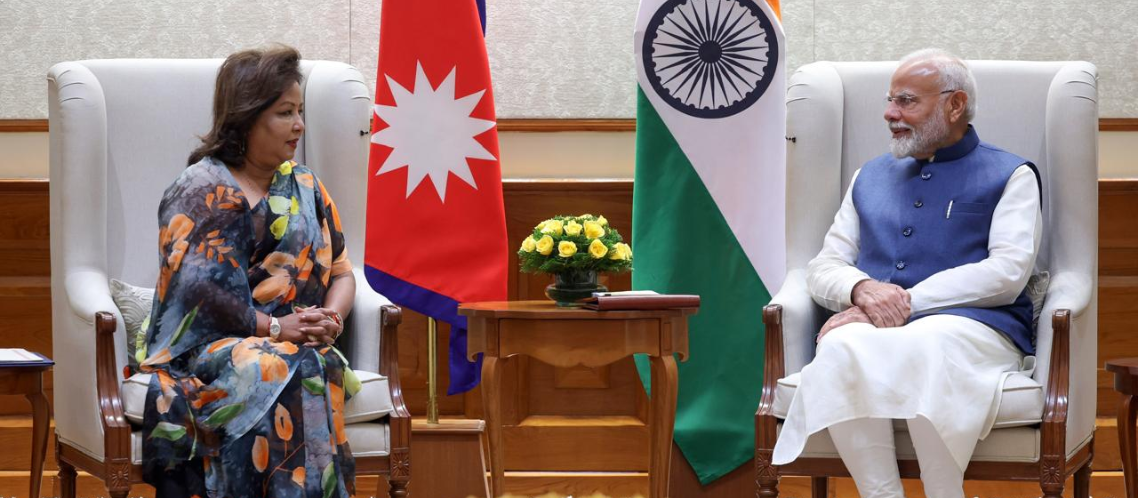
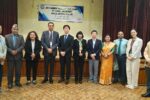
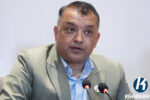
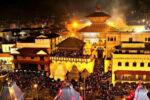
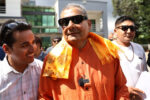
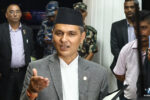

Comment